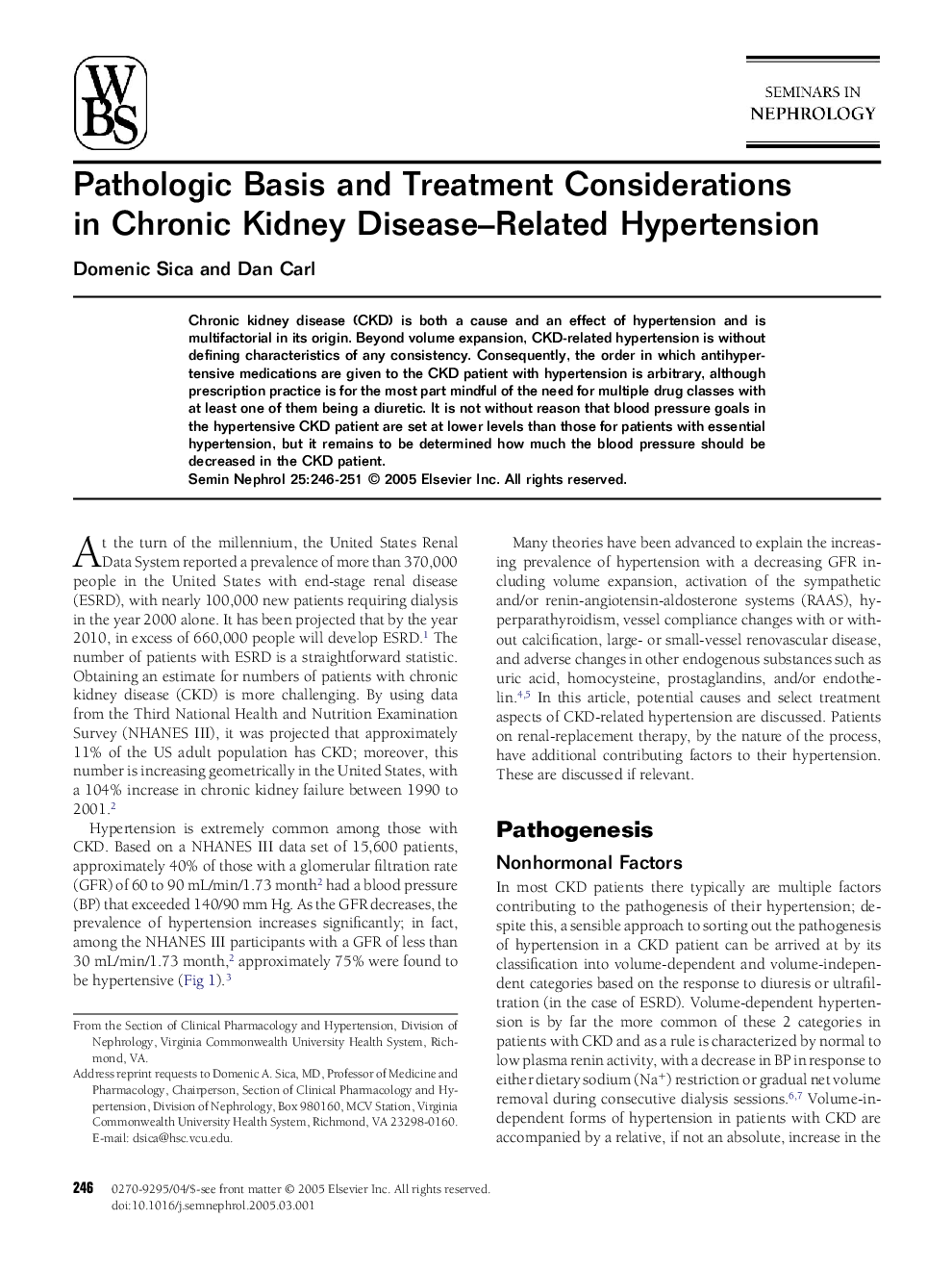| Article ID | Journal | Published Year | Pages | File Type |
|---|---|---|---|---|
| 9311500 | Seminars in Nephrology | 2005 | 6 Pages |
Abstract
Chronic kidney disease (CKD) is both a cause and an effect of hypertension and is multifactorial in its origin. Beyond volume expansion, CKD-related hypertension is without defining characteristics of any consistency. Consequently, the order in which antihypertensive medications are given to the CKD patient with hypertension is arbitrary, although prescription practice is for the most part mindful of the need for multiple drug classes with at least one of them being a diuretic. It is not without reason that blood pressure goals in the hypertensive CKD patient are set at lower levels than those for patients with essential hypertension, but it remains to be determined how much the blood pressure should be decreased in the CKD patient.
Related Topics
Health Sciences
Medicine and Dentistry
Nephrology
Authors
Domenic Sica, Dan Carl,
